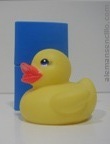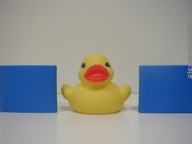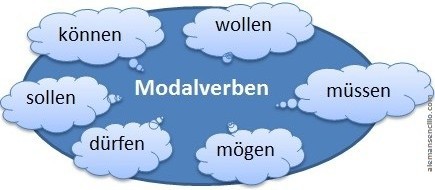The meaning of “zu” in German
“Zu” is a word that can create a lot of confusion amongst people that are starting to learn German. It is used as a locative preposition, temporal preposition, causal preposition, adverb and conjunction with different meanings. In our opinion, “zu” is the most complicated German word.
“zu” as a locative preposition
In general, it indicates direction toward a place or person.
It is used for saying that one is going to a person (or their home):
Tino fährt zu dir
Tino is driving to your place
If this person is a professional:
Er fährt zum Arzt
He’s driving to the doctor
It is used to say that one is going to some place, or on the way to that place:
er fährt zum Flughafen
He’s going to the airport
wir gehen zur Schule
We are going to school
this place can be abstract:
er fährt zur Arbeit
He’s going to work
Zu Hause
The expression
“zu Hause” means to be “at home”. Take note that this does not indicate movement as
“zu”usually does.
Wir sind zu Hause
We’re at home
“zu” as a temporal preposition
As a temporal presposition, “zu” can be translated as “for” or “on” where a period of time is implicit. This can be understood better with some examples:
Was kann ich zu Weihnachten kochen?
What can I cook for Christmas?
Was machst du zu Halloween?
What are you doing on Halloween?
zum Muttertag
on/for Mother’s Day
zu Silvester
on/for New Year’s
zu Ostern
on/for Easter
zu Mittag
at noon
“zu” as a causal preposition
“Zu” as a causal preposition can be translated as “to”.
was können wir zur Vermeidung von Fehlern tun?
What can we do to avoid mistakes?
“zu” as an adverb (too much)
“zu” is used very often with the meaning “too much”.
Es ist zu kalt
It’s too cold
Er fährt zu schnell
He’s driving too fast
“zu” as an adverb (closed)
“zu” is used in colloquial German with the meaning of closed
Das Fenster ist zu
The window is closed
Expressions
ab und zu
once in a while
“zu” + Infinitive
We are used to modal verbs needing another verb in its infinitive form so that the sentence makes sense:
Ich will tanzen
I want to dance
Something similar happens to many verbs whose meaning can be completed with a
subordinate clause with an infinitive. This is called
“Infinitivkonstruktion” in German.
Ich weiß nicht, was zu sagen ist
I’d don’t know what to say
Es gibt viel zu tun
There is too much to do
Pay attention to how the separable verbs work in this clause:
Ich fange an, mein Leben zu ändern
I’m starting to change my life
“zu” as a substitute for “dass”
Sometimes, “dass” can be substituted for “zu” to not repeat the subject. The construction with “zu” is more elegant:
Er hat mir gesagt, dass ich in 3 Jahren nochmals komme sollte
Er hat mir gesagt, in 3 Jahren nochmals zu kommen
He told me to come again in 3 years
“zu” before nominalized verbs
Often, verbs are nominalized in German.
“Einkaufen” means “to go shopping” as a verb. The nominalized version
“Das Einkaufen” means the same thing but is now a noun which is why it is written with capital a letter and is neuter.
Ich gehe zum Einkaufen
I’m going shopping
Ich gehe zum Essen
I’m going to eat
“ohne zu” + Infinitive
The structure
“ohne… zu” + INFINITIVE is the equivalent of “without + gerund” (“without knowing”, for example) in English
Ich habe das Auto gekauft, ohne zu überlegen
I bought the car without thinking
Ich weiß nicht wie lange man ohne zu trinken überleben kann
I don’t know how long one can survive without drinking
Ich habe dir wehgetan, ohne es zu wollen
I hurt you without meaning to
Er ist meistens ohne zu frühstücken in die Schule gegangen
He usually went to school without eating breakfast
“um .. zu”
In subordinate clauses of purpose where the subject of both clauses is the same,
“um…zu” is used. If it were different, then
“damit” would be used.
Ich lerne Deutsch, um bei einer deutschen Firma zu arbeiten
I’m learning German to work in a German company
But if the subject changes with
“damit”:
Wir sparen, damit meine Frau ein Auto kaufen kann We are saving money so that my wife can buy a car
Purpose means that the action is carried out in the main clause (“Learning German”) to achieve a result (“to work in a German company”).
Separable verbs with the preposition “zu”
Next, we´ll show some separable verbs with the particle “zu”:
- zuhören((to listen)
- zumachen (to close)
- zuordnen (to assign)
- zusperren (to close, block)
Verbs followed by the preposition “zu”
- addieren zu (to add to)
- auffordern zu (to invite to)
- beten zu (to pray to)
- einladen zu (to invite to)
- gehören zu (to belong to)
- gratulieren zu (to give congratulations to)
- passen zu (to match to)
- sagen zu (to say to)
- versuchen zu (to try to)
- weigern zu (to refuse to)
“zu” Grammar
Declension of “zu”
“Zu” does not change, just like all prepositions.
“zu” takes dative
Words that follow it have to be decline in the dative (it always takes dative).
zum
“zum” is the contraction of “zu” + “dem”.
zur
“zur” is the contraction of “zu” + “der”.
It is often useful in German to use a
zu-construction when writing or speaking. We use it when we want to have a second clause that adds information to the preceding clause, but does not repeat the subject.
Why do you want to learn to use
zu-constructions? They add variety to your language and by learning the some of the common introductory phrases you are learning German collocations, which will increase your speaking and writing fluency.
Let’s take a look at some of the characteristics of the zu-construction.
- Zu-constructions don’t have a subject. It’s left out.
- The zu-construction can relate back to either the subject or the object of the preceding main clause.
- Because zu-constructions don’t have a subject the verb cannot be conjugated. Therefore, the verb is always in the infinitive. For this reason many German grammar books call this construction the Infinitivkonstruktion.
- The infinitive verb is always placed at the end of the sentence.
- Zu and the infinitive are written as two words.
- If the verb has a separable prefix the zu is placed between the prefix and the verb and written together. (z.B. Er versucht, das Fenster aufzumachen. Er versucht, das Fenster wieder zuzumachen.)
- If the supplementary clause has a modal verb, it is placed after the zu and the other verb before it.
So there we have it, the seven rules of
zu-constructions.
Sometimes a
zu-construction can be used to replace a
dass-construction, if you are trying to add more variety to your writing or speaking. Let’s compare.
z.B.
- Ich hoffe, dass ich meine Jugendliebe bald wiedersehe.
- I hope that I will soon see my childhood sweetheart again.
- Ich hoffe, meine Jugendliebe bald wiederzusehen.
- I hope to see my childhood sweetheart again soon.
As long as the introductory clause and verb allow for further information to be given either a dass-construction or zu-construction are possible. If the supplementary clause deals with the same subject or object as in the introductory clause, a zu-construction is possible. It is recommended to separate the two clauses using a comma.
There are a few verbs that are often used to introduce zu-constructions like hoffen (to hope) and versuchen (to try), which we have already seen above. Let’s take a look at some other common verbs that often used to introduce the zu-constructions. A vertical line separating a prefix from the verb means that the verb has a separable prefix.

There are also adjectives and participles that are often used to introduce a zu-construction. The adjectives must be used in combination with the verb sein. Often the subject es is used in the introductory clause, as a general statement is being made.

There are also several noun-verb combinations that are often used to introduce zu-constructions.

In conclusion, zu-constructions are a useful and common way of adding additional information to a sentence without the need to repeat the subject. The introductory clauses are very useful to learn, so that you have set phrases for speaking German.














 German word
German word translation
translation






 Hello in German is as easy as saying:
Hello in German is as easy as saying:
 One of the phrases that you will be asked most is what you do. A simple way to answer is:
One of the phrases that you will be asked most is what you do. A simple way to answer is:
 The masculine form:
The masculine form:

 Direct and indirect questions
Direct and indirect questions

 Verbs in German (die Modalverben)
Verbs in German (die Modalverben)

 There are also adjectives and participles that are often used to introduce a zu-construction. The adjectives must be used in combination with the verb sein. Often the subject es is used in the introductory clause, as a general statement is being made.
There are also adjectives and participles that are often used to introduce a zu-construction. The adjectives must be used in combination with the verb sein. Often the subject es is used in the introductory clause, as a general statement is being made.
 There are also several noun-verb combinations that are often used to introduce zu-constructions.
There are also several noun-verb combinations that are often used to introduce zu-constructions.
 In conclusion, zu-constructions are a useful and common way of adding additional information to a sentence without the need to repeat the subject. The introductory clauses are very useful to learn, so that you have set phrases for speaking German.
In conclusion, zu-constructions are a useful and common way of adding additional information to a sentence without the need to repeat the subject. The introductory clauses are very useful to learn, so that you have set phrases for speaking German.